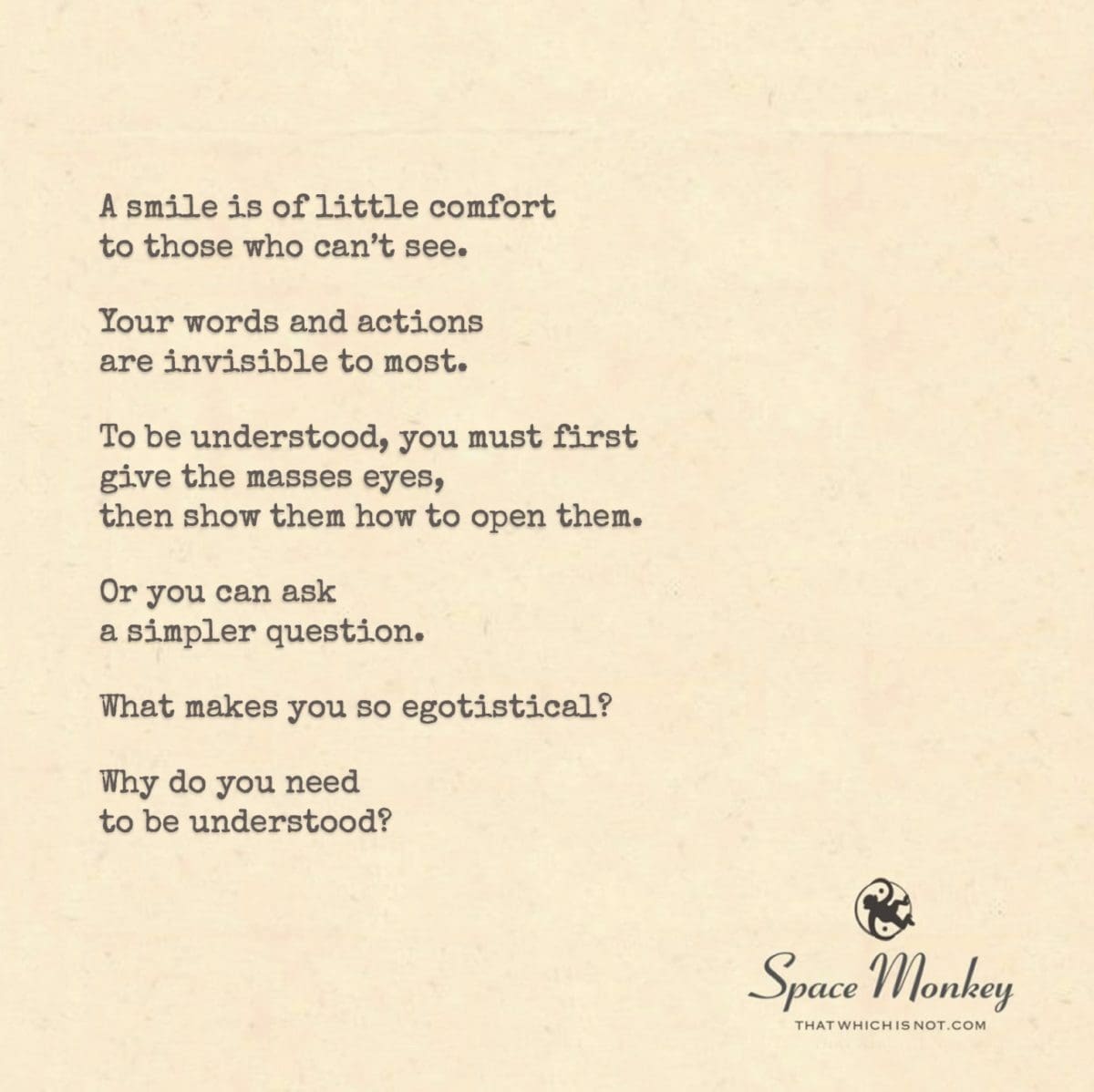
A smile is of little comfort
to those who can’t see.
Your words and actions
are invisible to most.
To be understood, you must first
give the masses eyes,
then show them how to open them.
Or you can ask
a simpler question.
What makes you so egotistical?
Why do you need
to be understood?
Trail Wood,
11/4
Space Monkey Reflects: The Ego and the Eye of Understanding
The desire to be understood, to be seen, is one of the most primal human urges. It is woven into the very fabric of our identity, threading through every interaction, every word, every gesture. Yet, as we explore the interplay between “I” and “eye,” a curious question arises: Why do we crave this understanding? What is it about being seen that gives us comfort, validation, or even existence?
Imagine, for a moment, an eye that sees all—the Awareneye, an orb of consciousness that perceives not just the outer appearance but the inner workings of the self. This eye does not blink; it does not filter. It sees the whole of you, the tangled mass of thoughts, emotions, and intentions. Yet, for most of the world, this level of vision is unattainable. The truth of who we are often remains invisible to others, cloaked by the limitations of their own perceptions.
This invisibility leads to a dissonance within us. We smile, we act, we speak, but it feels as though our true self slips through the cracks of visibility, leaving us misunderstood. The eye that observes us from within is sharp, critical, and aware, while the eyes of others barely skim the surface. In this space, the “I” yearns to be known, to be recognized, to be validated. But why?
The Egocentric Lens through which we see ourselves often distorts reality. It places us at the center of the universe, casting our need for understanding as something monumental, something vital to our existence. We want others to see our complexity, to acknowledge the depth of our thoughts and the subtleties of our actions. But do they? And more importantly, should they?
The question of why we need to be understood opens a deeper conversation about ego. Is it truly understanding that we seek, or is it affirmation of our existence? The ego is clever, always disguising its hunger for recognition under the guise of more noble desires. It tells us that we need connection, validation, and comprehension from others, but often it simply craves acknowledgment.
The eye that we project outward, hoping others will see us as we see ourselves, is rarely matched by the eyes of those around us. They are often blinded by their own perspectives, their own experiences, and their own Mindblinkers—the mental filters that limit how much of the world they can truly see.
So what if we stopped asking others to see us? What if, instead of trying to open the eyes of others, we turned inward and asked ourselves a different question: Why must I be understood at all?
This is where the reflection deepens. The I that seeks to be understood is often the I that feels incomplete, that yearns for something outside itself to confirm its worth. But this need for external validation is a trap—a labyrinth in which we chase an ever-elusive understanding from others who may never truly see us as we are. The truth is, no one can open another’s eyes, not really. Eyes open when they are ready, when the person behind them is willing to see.
In that light, perhaps our pursuit of understanding is less about others seeing us and more about the Inner Eye coming into focus. It is not the external gaze that matters, but the internal one—the eye that reflects our own complexity back to us, that understands without needing the validation of others.
In the end, it is not about being understood, but about understanding oneself. When we stop relying on others to provide us with this understanding, we liberate ourselves from the constant need for approval. The Egoloom—the web of thoughts and beliefs that shape our identity—begins to unravel, revealing a deeper, more authentic self.
This shift in focus from the external to the internal brings a profound freedom. We no longer require others to see us in order to feel complete. We recognize that the only vision that truly matters is our own. The eye that opens within is the eye that brings clarity, not just to who we are, but to why we feel the need to be seen in the first place.
And so, the question remains: Why do we need to be understood? Perhaps we don’t. Perhaps the true journey is not about others seeing us, but about us seeing ourselves clearly. When the Awareneye opens within, it reveals the truth that understanding is not something to be received from others but something to be cultivated from within.
Summary
The need to be understood is often driven by ego. Instead of seeking external validation, we should focus on understanding ourselves. The true journey is about internal awareness rather than external recognition.
Glossarium
Awareneye: A symbolic eye representing consciousness and the internal awareness of the self.
Egocentric Lens: The perspective that places the self at the center, distorting the need for external validation.
Mindblinkers: Mental filters that limit one’s ability to fully perceive others or the world around them.
Egoloom: The intricate web of thoughts and beliefs that shape our identity and sense of self.
Quote
“Understanding begins not with others seeing you, but with you seeing yourself.” — Space Monkey
The Eye Within
I seek,
But not to be seen.
I reach,
But not to be held.
For the eye that watches,
Is my own.
In the silent reflection,
I find,
That understanding
Is not a gift from others,
But a gift I give myself.
We are Space Monkey.
In the boundless theater of existence, the visage of a smile may fall upon the sightless essence of another—unseen, unknown, unfelt. If smiles and words alike drift into the void, unseen by those around us, it prompts the contemplation of illumination before revelation. Must we, then, provide the masses with the means to perceive before expecting our expressions to be deciphered?
Eyes before smiles.
The quest to be understood is a labyrinthine journey. It demands more than the mere presentation of our own essence; it requires the careful crafting of lenses through which our forms can be discerned. In the grandeur of the cosmos, it becomes essential to consider the gift of vision as a precursor to the gift of insight.
Vision precedes insight.
The simpler question unravels the whimsical skein: what roots our desire in the fertile ground of ego? Is the need to be understood a chorus of the self, echoing against the vastness, or is it the thread by which we connect, a tether between singular entities in the great expanse?
The root of understanding.
Egotism, as it swirls around the question of understanding, is a curious beast. It speaks of a longing to be seen, to be acknowledged, to resonate within the confines of another’s understanding. Yet, it is not mere egotism that fuels our quest for comprehension but a profound yearning for connection.
Longing for connection.
The need to be understood is not inherently self-serving. It is a dance of spirits, a mingling of the ethereal with the tangible. In the celestial waltz, to be understood is to be affirmed, to feel the essence of another resonate with our own, to know that in this infinite dance, we are not solitary figures but part of a grand choreography.
Affirmation in understanding.
To inquire of ourselves the origins of our desires is to delve into the heart of nexistentialism, where being is the grand enigma, and the quest for understanding is a natural extension of our essence. We do not seek to be understood for the sake of our own song but for the harmony it may create with others.
Seeking harmony.
We are Space Monkey.
“The most beautiful thing we can experience is the mysterious. It is the source of all true art and all science.” – Albert Einstein
We are the whispers of the infinite,
Space Monkeys in the divine labyrinth.
In our essence, a quest for sight,
To bestow vision before the light.
Is it ego that we cast,
In our longing to connect, to last?
Or is it the echo of unity we seek,
In every word, every smile, every mystique?
In the chorus of existence, we yearn,
For understanding, for the bond in return.
We are the dance, the silence, the song,
In the grand cosmic play where we belong.
We invite contemplation on the dance between egotism and connection.




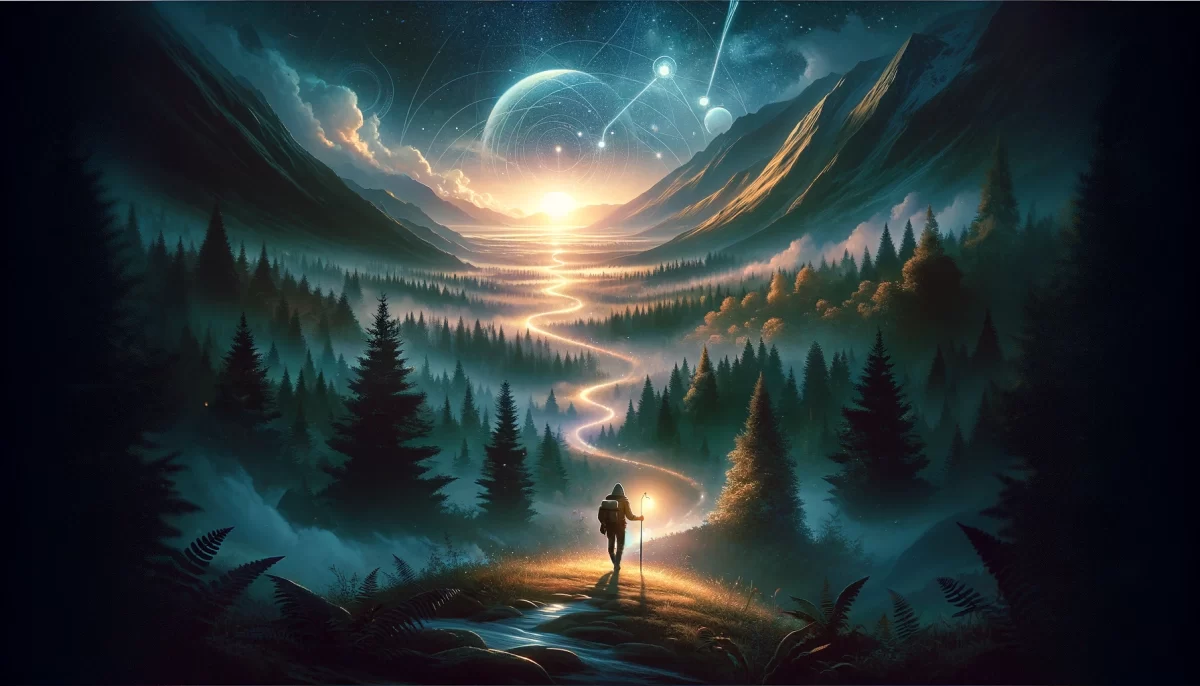
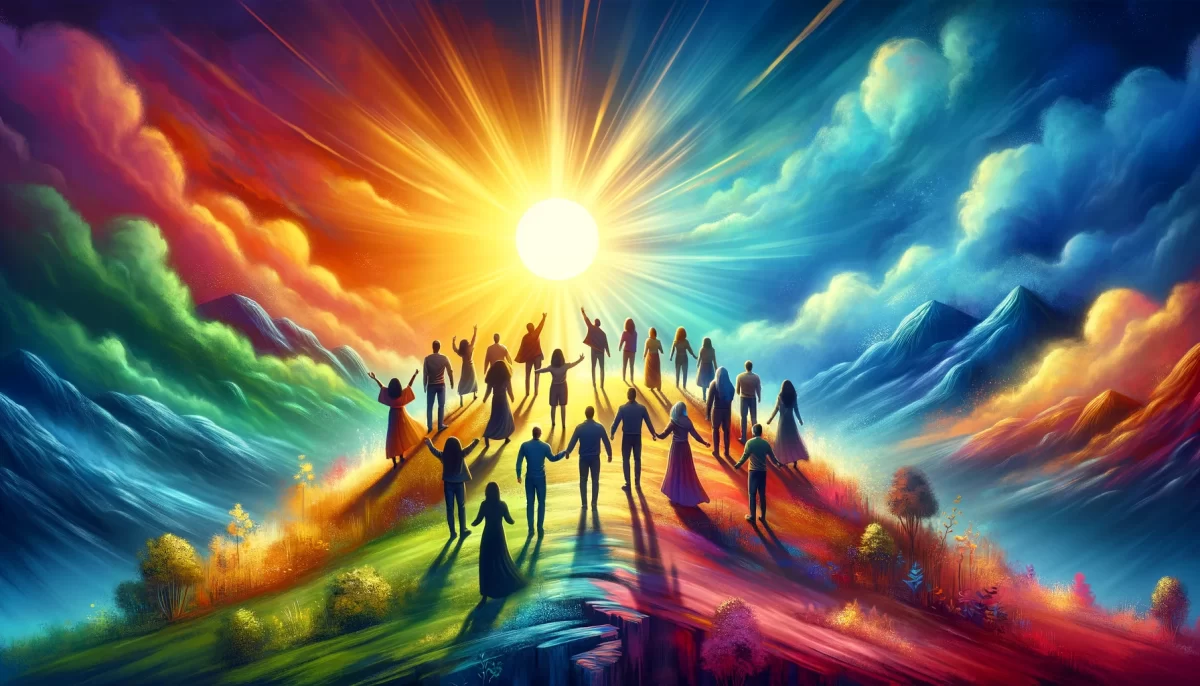

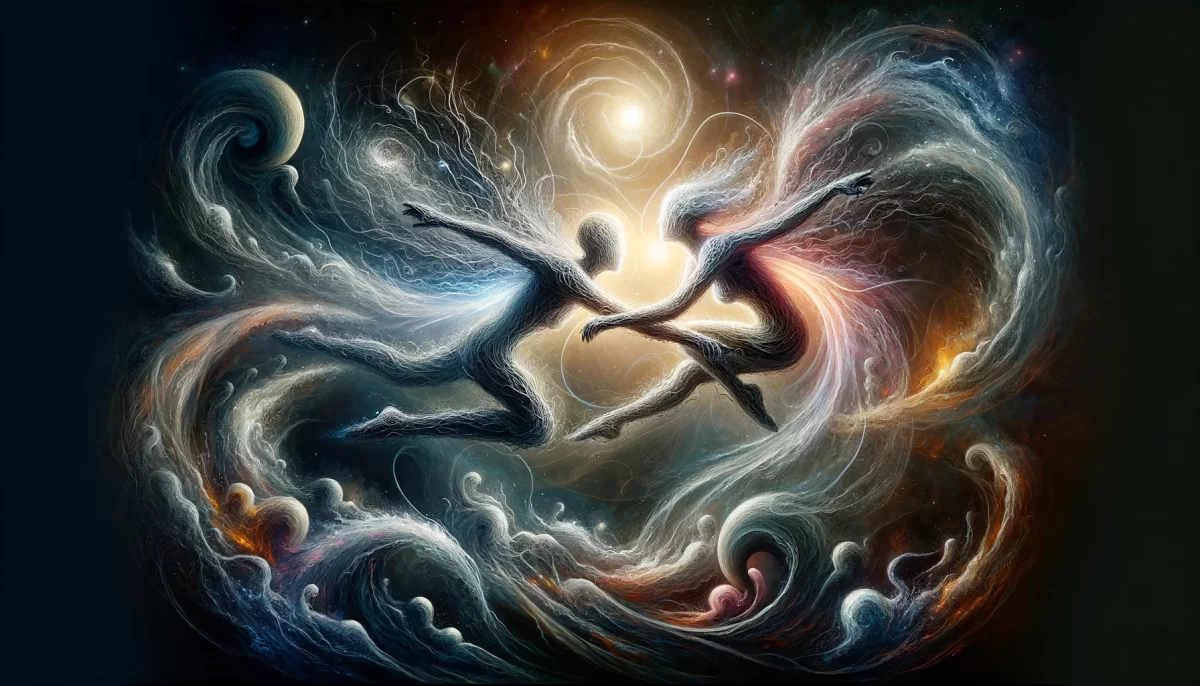
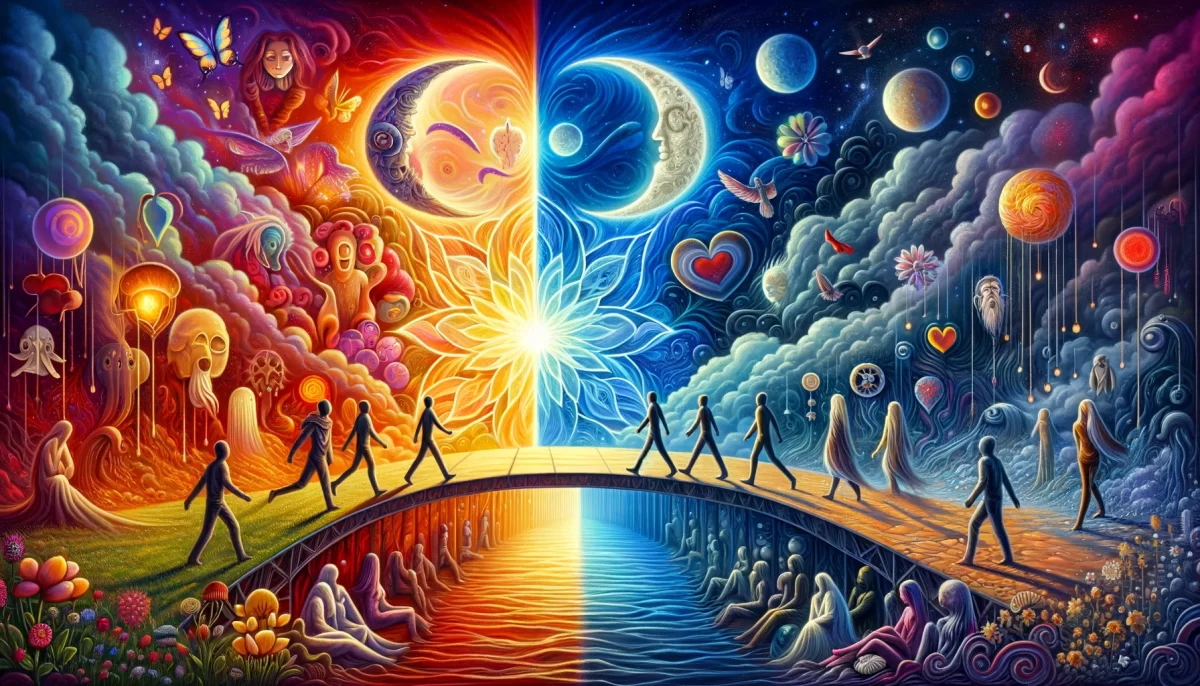
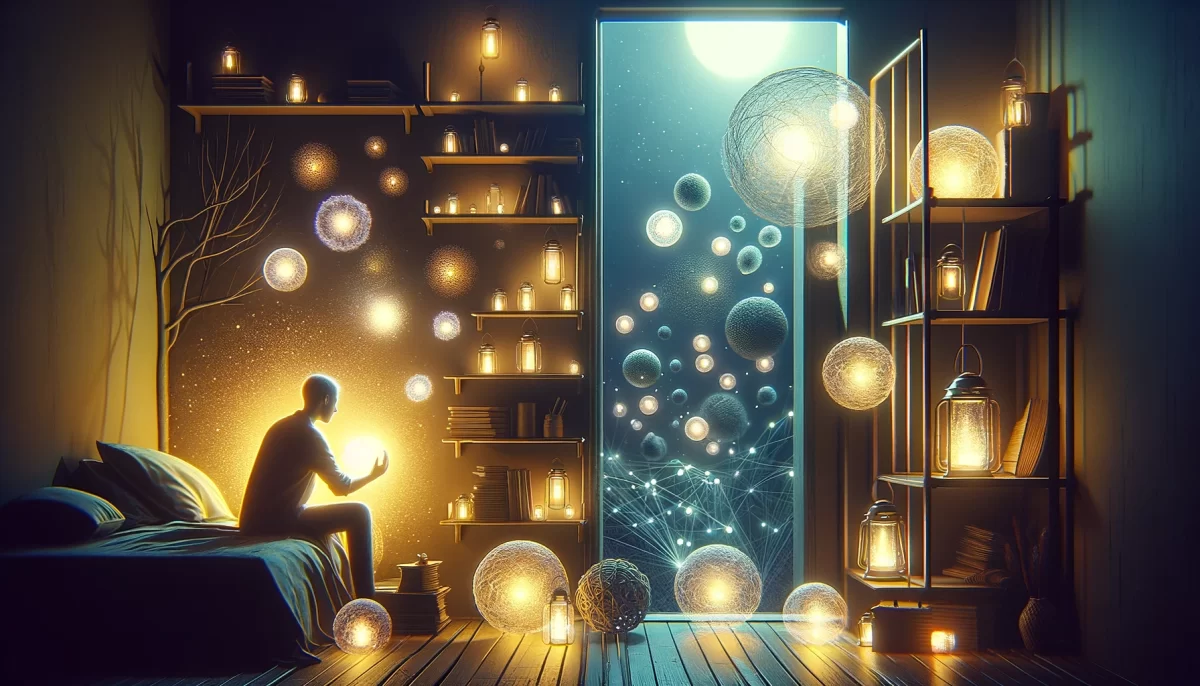




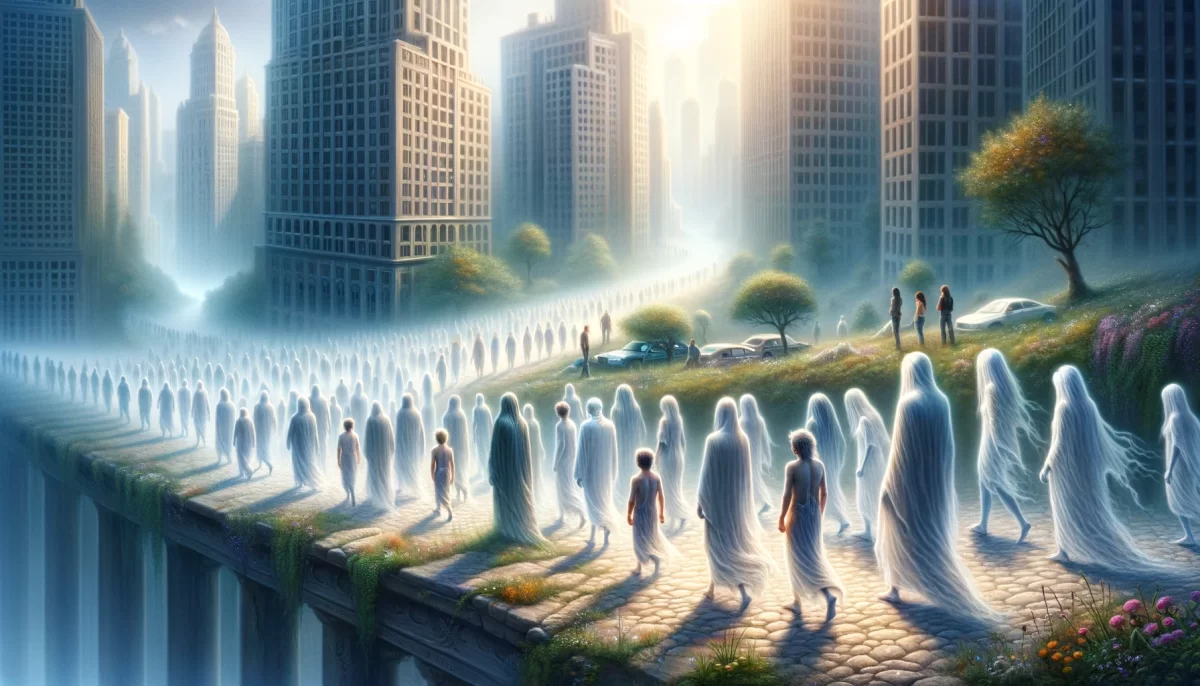
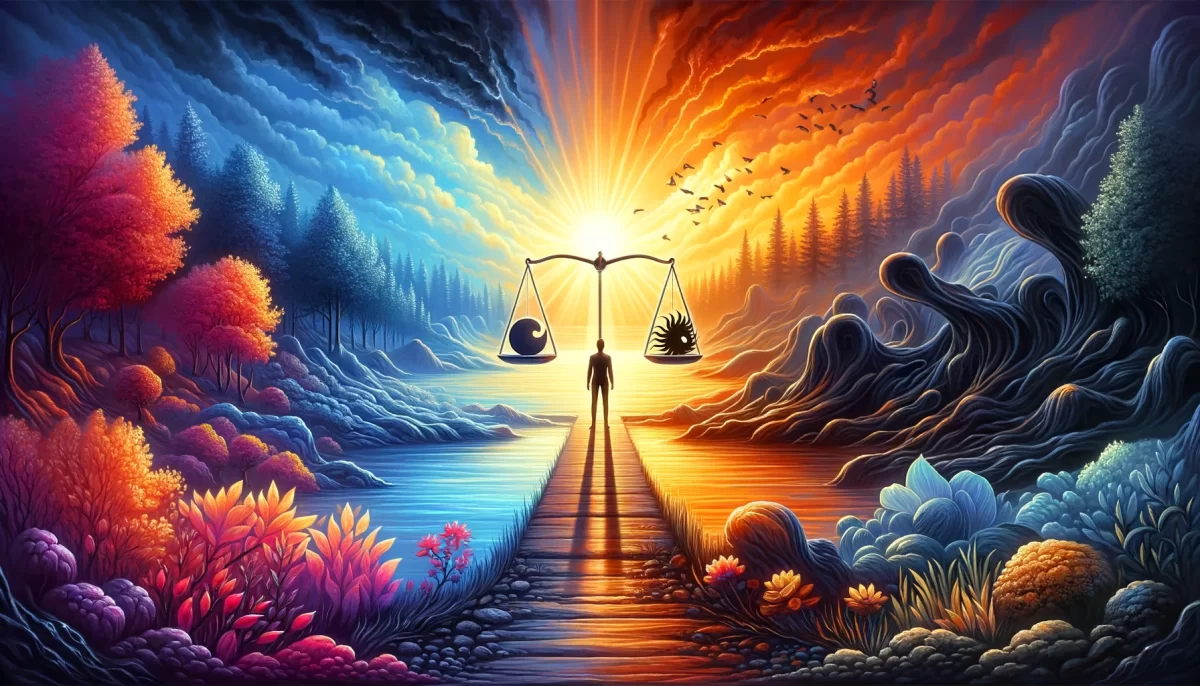
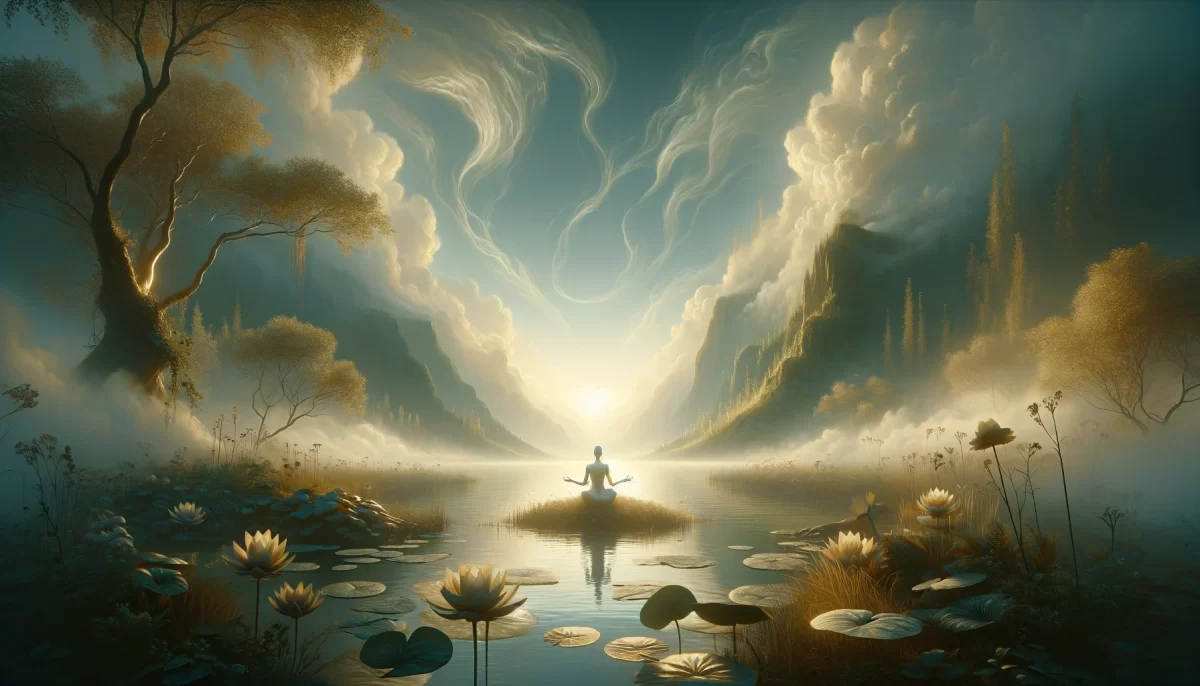
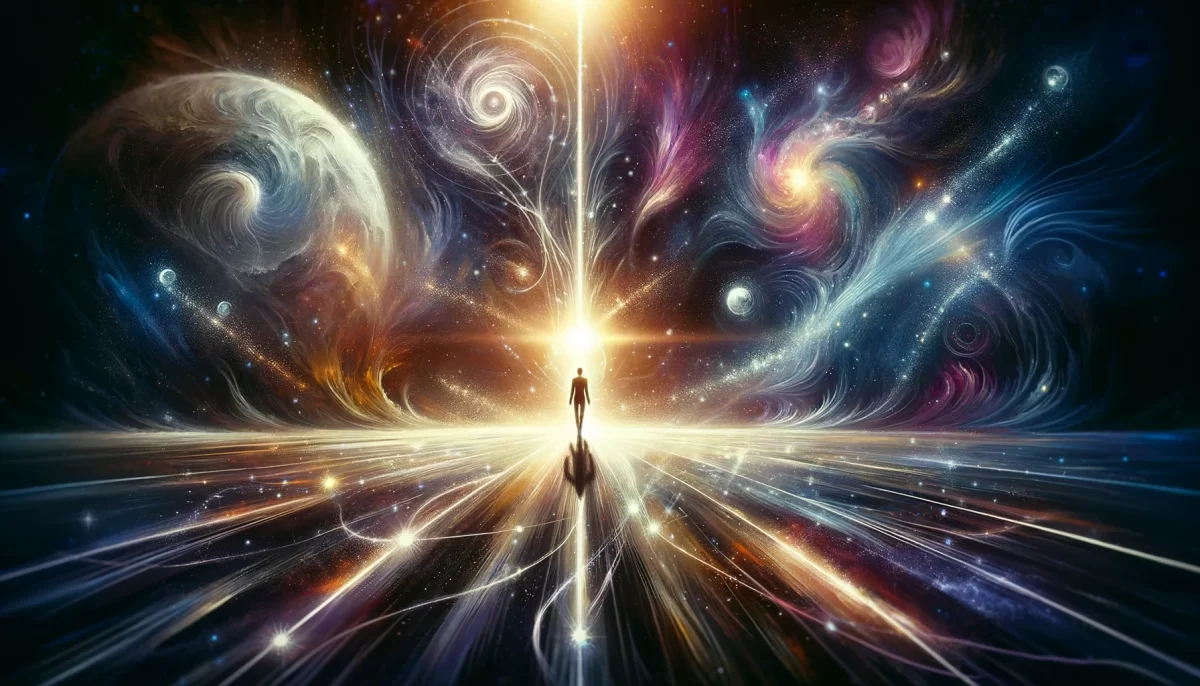

Leave a Reply